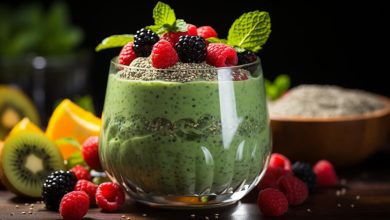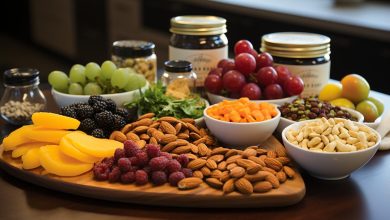Post-Run Nutrition Mistakes to Avoid

Are you making the right choices when it comes to post-run nutrition? Did you know that what you eat and drink after your run can significantly impact your recovery and performance?
In this article, we’ll explore common post-run nutrition mistakes to avoid so that you can optimize your body’s replenishment and get back on track faster. From hydration to nutrient timing, we’ll provide practical tips backed by evidence-based research to help you make informed decisions.
Don’t let these mistakes hinder your progress – read on to learn more!
Ignoring Post-Run Hydration

Don’t forget to replenish your fluids after a run to avoid ignoring post-run hydration. Hydration plays a crucial role in maintaining your body’s balance and performance. After a long run, it is important to replace the fluids lost through sweat to prevent dehydration and aid in recovery.
Staying hydrated during long runs is essential for optimal performance and overall health. Here are some tips to help you stay hydrated:
1. Drink water before, during, and after your run: Start hydrating at least an hour before your run by drinking 16-20 ounces of water. During your run, aim to consume 4-6 ounces of fluid every 20 minutes. After your run, drink another 16-24 ounces of water.
2. Consider sports drinks: If you’re running for longer than an hour or sweating excessively, consider incorporating sports drinks that contain electrolytes. These drinks can help replenish lost electrolytes and provide additional energy.
3. Monitor your urine color: A pale yellow urine color indicates proper hydration, while dark yellow urine indicates dehydration.
Remember, every individual’s hydration needs may vary based on factors such as climate conditions and intensity of exercise. Listen to your body’s signals and adjust accordingly.
Skipping Post-Run Refueling

Skipping refueling after a run can hinder recovery and potentially lead to muscle fatigue. After an intense workout, your body needs proper nutrition to replenish glycogen stores, repair damaged muscles, and optimize recovery. Ignoring post-run refueling can delay this process and leave you feeling drained for longer periods of time. To avoid these negative effects, it is crucial to prioritize post-run refueling.
The importance of post-run recovery cannot be overstated. Consuming the right nutrients within the first 30 minutes to an hour after exercise enhances your body’s ability to rebuild glycogen stores and promote muscle repair. Aim for a combination of carbohydrates and protein in a ratio of approximately 3:1 or 4:1 respectively. Carbohydrates help replenish energy stores while protein aids in muscle recovery.
Some of the best post-run refueling options include a banana with peanut butter, Greek yogurt with berries, or a smoothie made with fruits, vegetables, and protein powder. These options provide essential nutrients like potassium for electrolyte balance and antioxidants for reducing inflammation.
Overindulging in Unhealthy Post-Run Snacks

Indulging in unhealthy post-run snacks can hinder your recovery progress and undermine the benefits of your workout. After a run, it’s important to refuel your body with nutritious foods that will support muscle repair and replenish energy stores.
However, reaching for unhealthy snack options can sabotage your efforts. Instead of grabbing a bag of chips or a sugary treat, consider healthier alternatives that will nourish your body.
Opt for snacks that are rich in protein and carbohydrates to aid in muscle recovery and glycogen replenishment. Greek yogurt with berries or a small handful of nuts are great choices. These options provide essential nutrients while satisfying hunger cravings.
Additionally, practicing mindful eating habits can help you make better snack choices after a run. Pay attention to your body’s signals of hunger and fullness, and choose snacks accordingly. This will prevent overindulgence in unhealthy options.
Neglecting Post-Run Nutrient Timing

Make sure you prioritize the timing of your nutrient intake after a run to optimize recovery and refuel your body effectively. The importance of post-run nutrient timing cannot be overstated. When you exercise, especially after a strenuous run, your muscles are in need of replenishment. Consuming the right nutrients at the right time can help maximize muscle repair and growth.
One of the best post-run nutrition strategies is to consume a combination of carbohydrates and protein within 30 minutes to an hour after your run. Carbohydrates are essential for replenishing glycogen stores, while protein aids in muscle repair. Aim for a ratio of 3:1 or 4:1 carbohydrates to protein for optimal recovery.
Another important factor in post-run nutrient timing is hydration. Replenishing electrolytes lost through sweat is crucial for maintaining proper fluid balance and preventing dehydration. Consider consuming a sports drink or coconut water that contains electrolytes along with your post-run snack.
In addition to timing, choosing nutrient-dense foods is key. Opt for whole foods such as fruits, vegetables, lean proteins, and whole grains rather than processed snacks or sugary drinks. These nutritious choices provide vitamins, minerals, and antioxidants that aid in recovery and overall health.
To sum it up, prioritize the timing of your nutrient intake after a run by consuming a combination of carbohydrates and protein within 30 minutes to an hour post-exercise. Don’t forget about hydration and choose nutrient-dense whole foods over processed snacks for optimal recovery and refueling. By following these strategies, you can enhance your body’s ability to recover efficiently from demanding runs.
Failing to Replenish Electrolytes After a Run

Don’t overlook the importance of replenishing electrolytes after your run to maintain proper hydration and prevent muscle cramps. Electrolyte imbalance can occur when you sweat excessively during a workout, leading to an inadequate level of electrolytes in your body.
To ensure you are properly hydrating and replenishing these essential minerals, consider the following strategies:
– Drink plenty of water: Hydration is key when it comes to maintaining electrolyte balance. Aim to drink at least 8-10 glasses of water throughout the day, including before, during, and after your run.
– Consume electrolyte-rich foods: Incorporate foods that are naturally high in electrolytes into your post-run meals or snacks. Some examples include bananas (rich in potassium), spinach (high in magnesium), and avocados (a good source of sodium).
– Consider sports drinks or electrolyte supplements: If you find it challenging to meet your electrolyte needs through food alone, sports drinks or electrolyte supplements can be beneficial. Look for products that contain a balanced blend of sodium, potassium, magnesium, and calcium.
By implementing these hydration strategies and paying attention to replenishing electrolytes after your run, you can help prevent the risk of developing an electrolyte imbalance.
Remember that everyone’s hydration needs may vary based on factors such as intensity and duration of exercise, so listen to your body’s cues and adjust accordingly.
Conclusion
In conclusion, taking care of your post-run nutrition is crucial for optimal recovery and performance. Remember to hydrate properly after your run and refuel with a balanced meal or snack. Avoid overindulging in unhealthy options. Additionally, timing is key when it comes to nutrient intake, so don’t neglect this aspect.
Lastly, be sure to replenish electrolytes to support muscle function and prevent cramping. Did you know that research shows that consuming protein within 30 minutes after exercise can enhance muscle repair and growth? So make sure to prioritize your post-run nutrition to reap the full benefits of your workouts.






